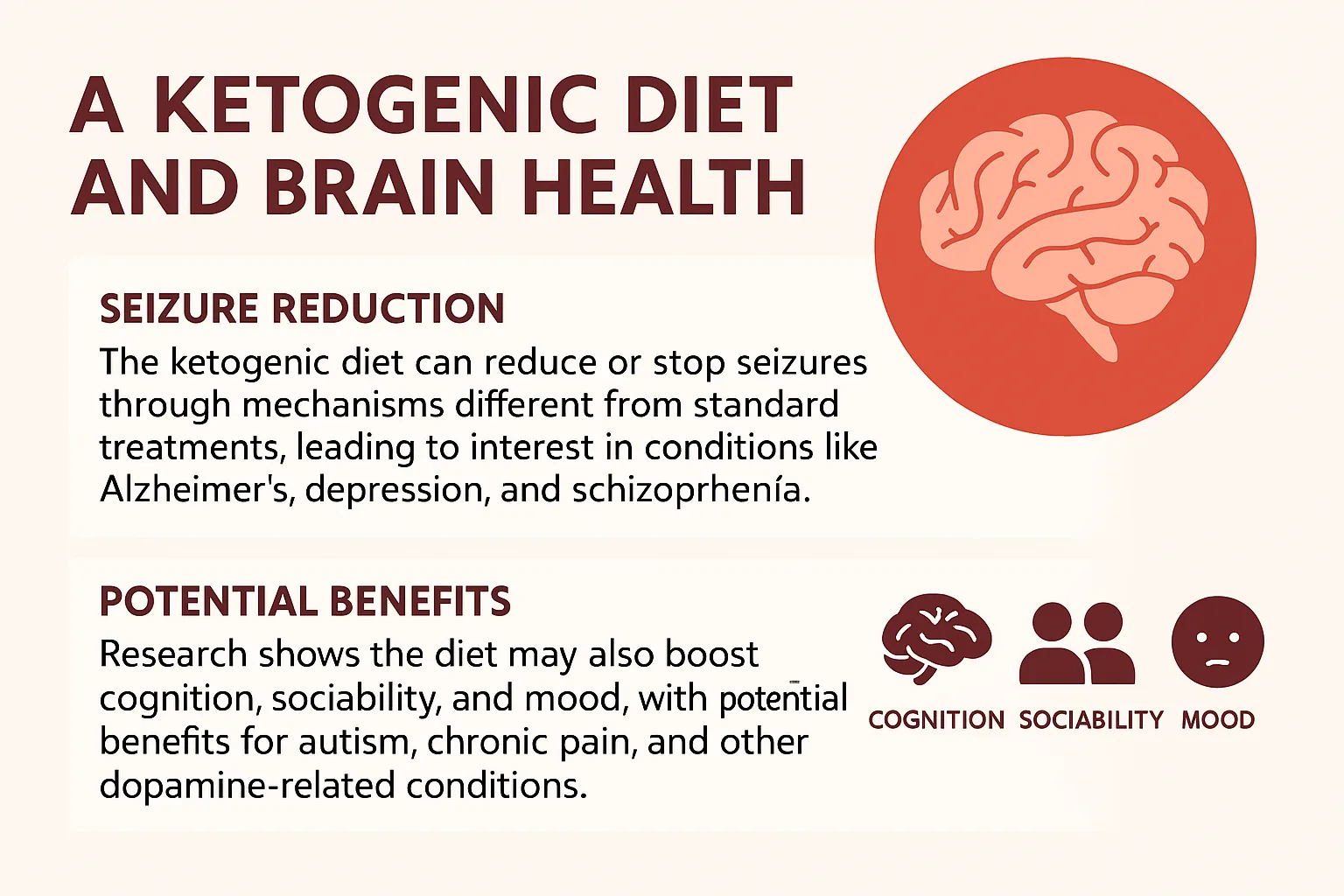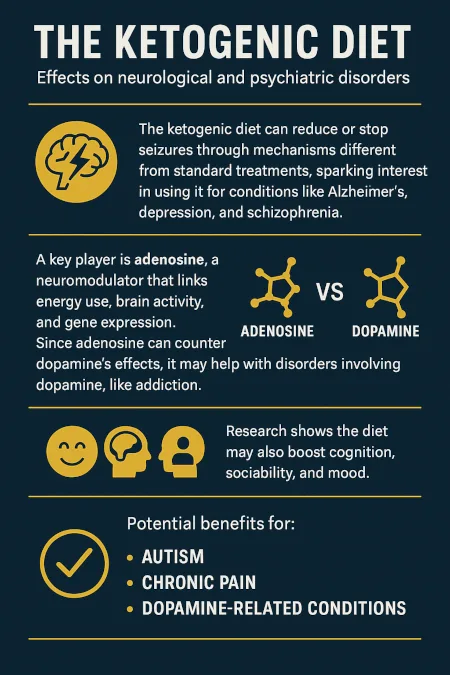
The TL;DR
The ketogenic diet can reduce or stop seizures through mechanisms different from standard treatments, sparking interest in using it for conditions like Alzheimer’s, depression, and schizophrenia.
A key player is adenosine, a neuromodulator that links energy use, brain activity, and gene expression. Since adenosine can counter dopamine’s effects, it may help with disorders involving dopamine, like addiction.
Research shows the diet may also boost cognition, sociability, and mood, with potential benefits for autism, chronic pain, and other dopamine-related conditions.

Ketogenic diet, adenosine, and dopamine in addiction and psychiatry
Enjoy this MINI REVIEW article:
Front. Nutr.
Sec. Nutrition, Psychology and Brain Health
Volume 12 – 2025 |
doi: 10.3389/fnut.2025.1492306
This article is part of the Research Topic Ketogenic Metabolic Therapy as a Treatment for Mental Health Disorders
Provisionally accepted
- Trinity College, Hartford, CT, United States
The final, formatted version of the article will be published soon.
Adhering to the ketogenic diet can reduce or stop seizures, even when other treatments fail, via mechanism(s) distinct from other available therapies. These results have led to interest in the diet for treating conditions such as Alzheimer’s disease, depression and schizophrenia.
Evidence points to the neuromodulator adenosine as a key mechanism underlying therapeutic benefits of a ketogenic diet. Adenosine represents a unique and direct link among cell energy, neuronal activity, and gene expression.
The importance of the dopaminergic system is established in addiction, as are the challenges of modulating the dopamine system directly. A mediator that could antagonize dopamine’s effects would be useful, and adenosine is such a mediator due to its function and location.
Studies report that the ketogenic diet improves cognition, sociability, and perseverative behaviors, and might improve depression. Many of the translational opportunities based on the ketogenic diet/adenosine link have come to the fore, including addiction, autism spectrum disorder, painful conditions, and a range of hyperdopaminergic disorders.
Keywords:
Ketogenic Diet, Adenosine, Dopamine, Psychiatric disorder, Addiction
Received:
06 Sep 2024;
Accepted:
11 Feb 2025.
Copyright:
© 2025
Ruskin, Martinez and Masino. This is an open-access article distributed under the terms of the
Creative Commons Attribution License (CC BY). The use, distribution or reproduction in other forums is permitted, provided the original author(s) or licensor are credited and that the original publication in this journal is cited, in accordance with accepted academic practice. No use, distribution or reproduction is permitted which does not comply with these terms.
* Correspondence:
David Ruskin, Trinity College, Hartford, CT, United States
Susan A Masino, Trinity College, Hartford, CT, United States




